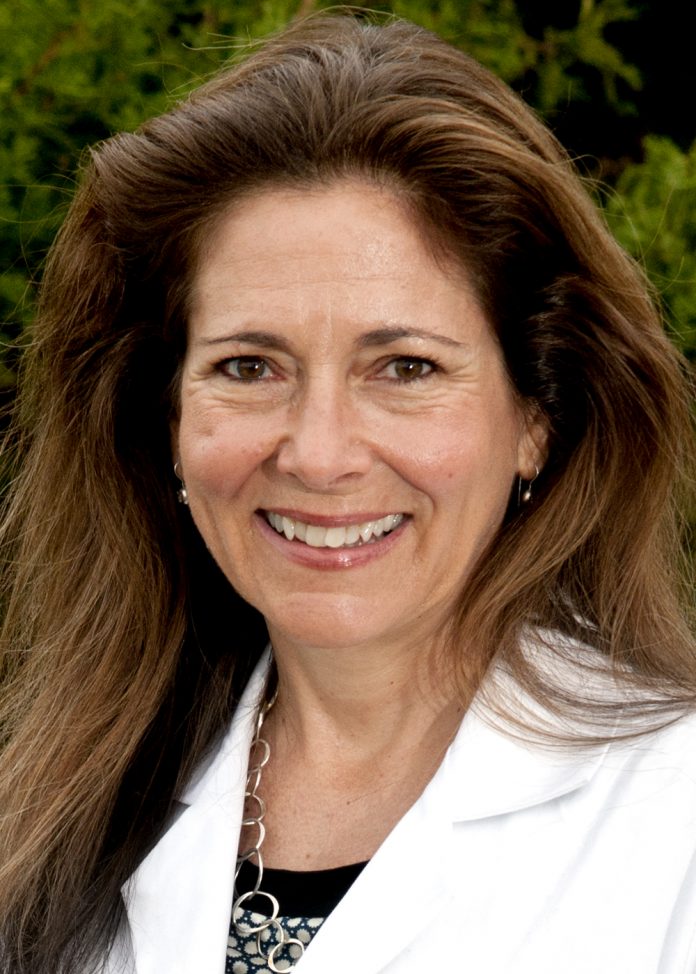Dr. Doreen Wiggins, an obstetrician-gynecologist and surgical oncologist who focuses on breast cancer, is one of the founders of FRIENDS WAY, Rhode Island’s only bereavement program for children and families. The nonprofit recently celebrated its 20th anniversary.
Wiggins has remained deeply involved with FRIENDS WAY over the years and made use of its services after her husband died when their daughter was young.
PBN: How did the idea for FRIENDS WAY come about and why did you become involved?
WIGGINS: FRIENDS WAY – Families Reaching Into Each New Day – began in 1999 with founder Jennifer Kaplan, who, sadly, lost her brother in a canoeing accident during a family trip when they were teenagers. Her vision was to provide local bereavement support to children and families based on the model of the national grieving center, The Dougy Center, and free of charge.
I became involved in 2000 after returning from a children’s grief counselor training at the Dougy Center – I opened the Providence Journal and read an article on Jenny and the beginning of FRIENDS WAY. I called her that next Monday and became a volunteer, a board member and gala chair with my husband, Michael Wiggins. Together, we were dedicated wholeheartedly.
PBN: How many families does the organization reach annually, and what has the impact been over 20 years?
WIGGINS: When FRIENDS WAY started its groups in 2000, we had approximately 20 families who participated during the first couple of years. Then, three years into its operation, FRIENDS WAY was called on to help support the families of those who died in the Station Nightclub Fire in February 2003. This event was a turning point for bringing together the community in better understanding the grief children experience from traumatic death and solidified FRIENDS WAY in its role of supporting families.
Ten years ago, FRIENDS WAY served an average of 75 families. This past year, 115 families participated in the program, which included almost 200 children and 115 caregivers. The families come from 42 different communities across Rhode Island, southern Massachusetts, with even a couple attending from Connecticut.
PBN: What kind of data-driven or anecdotal evidence does the organization have to show that it’s been successful in its mission?
WIGGINS: Studies show that children suffering from loss are more likely to participate in risky behaviors, drop out of school, and suffer from alcohol and drug dependence, and depression and anxiety.
Research also demonstrates that providing peer-based support gives children a sense of belonging and understanding with others of similar age and is fundamental in creating a safe haven and helping promote post-traumatic growth. The New York Life Foundation/National Alliance for Grieving Children poll was conducted in-person at bereavement centers during group sessions this past decade. The outputs are too numerous for this interview, but our program is completely aligned with national best practices. Our facilitators and the children’s caregivers monitor children’s progress in several areas, including increased ability to express feelings associated with their grief and use healthy coping strategies.
PBN: How was FRIENDS WAY helpful to you and your family when your husband died?
WIGGINS: My daughter Jade was 23 months when Michael died. In preschool at age 4, she came home and said, “Mommy, I am the only one who doesn’t have a dad. I miss having a dad. Nobody else is like me.” We immediately started going to the Tuesday night group, Jade in the 4-6-year age group, me in the adult group.
Sitting in group for me, even as a physician and grief counselor, brought great insight to what I was feeling inside and coping with my loss of Michael. I opened my story to others, as a participant in grief, not as a witness or caregiver. We bury so much inside that can prevent healing.
Helping Jade by going to FRIENDS WAY helped me probably even more. Jade enjoyed talking about her feelings, her dad and sharing a common bond with other kids. It changed us in a positive way, creating depth of who Michael was within us.
PBN: How has FRIENDS WAY evolved over the years and how do you see it evolving in the future?
WIGGINS: FRIENDS WAY continues to serve the community’s needs with our peer-based support. We have created an annual professional-development conference about children’s grief in the community. Last year’s daylong event was sold out and focused on the impact of traumatic events such as shootings and suicide in our schools and community, with speakers on national and local levels. We had a student from Portsmouth High School share a personal experience with the suicide of a sophomore and the organization “Be Great for Nate!” It was a powerful and inspiring day.
In January 2020, the conference will focus on the impact of opioid crisis, loss and opportunities for community change. Our future goal is to continue providing direct support to families while also creating a forum for community members and organizations to develop greater understanding of helping children deal with death and loss.
William Hamilton is PBN staff writer and special projects editor. You can follow him on Twitter @waham or email him at hamilton@pbn.com.











